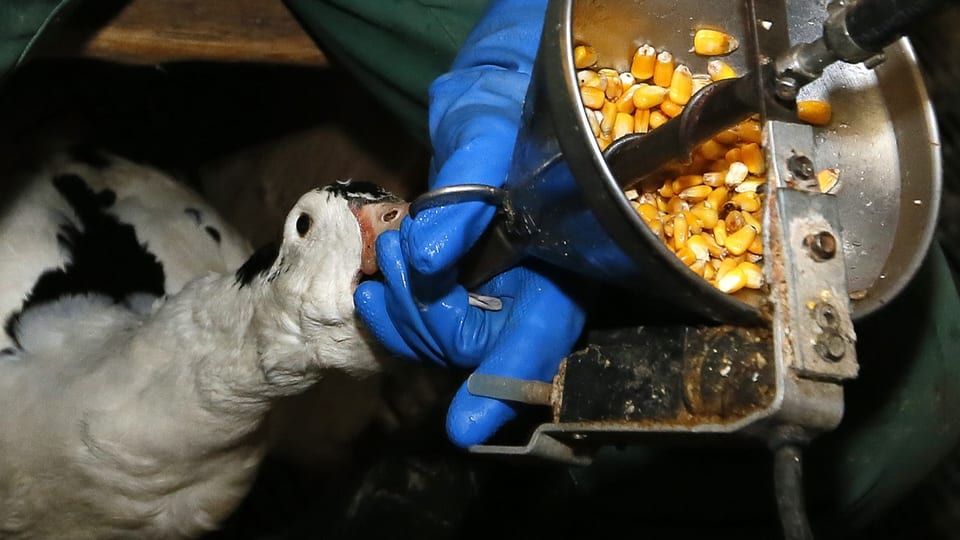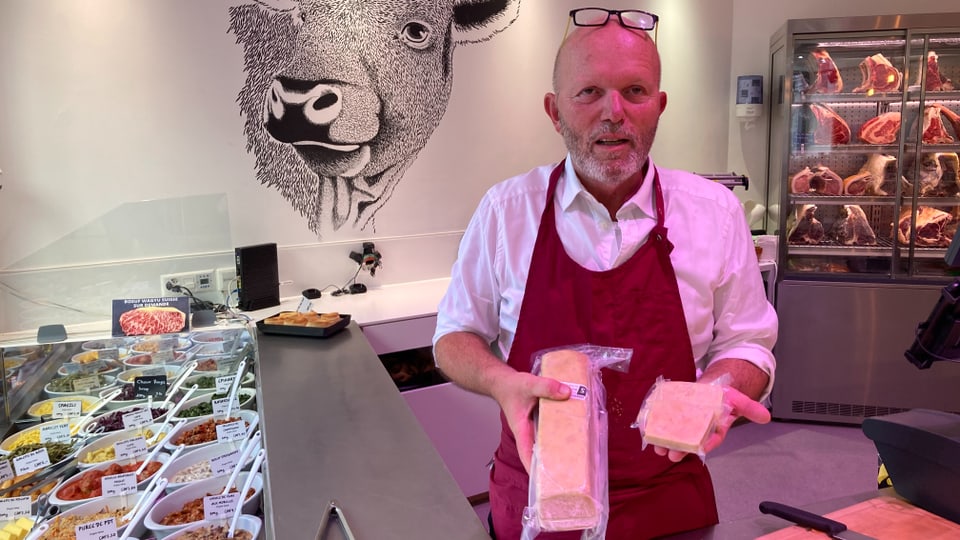Contents
The “foie gras ditch” also separates Parliament. But why can’t the Romands simply do without the controversial delicacy?
“Here you can see our homemade foie gras,” says Sébastien Losey, patron of a large butcher shop in Lausanne city center. The basis for this – foie gras – is imported. Martin Haab, Zurich SVP National Councilor and farmer, wanted to ban exactly such imports.
Martin Haab pushed the initiative through the National Council at the first attempt. However, the Council of States weakened the initiative. In the small chamber, a narrow majority was of the opinion that a declaration requirement with reference to the fattening was sufficient. There is no need for a ban.
Legend:
Butcher Sébastien Losey says he understands if German-speaking Swiss don’t want to eat foie gras. “But French-speaking Switzerland is also part of Switzerland, and foie gras is part of French-speaking Switzerland.”
Andreas Stüdli/SRF
Today it was the National Council’s turn again and farmer Haab continued to advocate for his ban: “I want to go all out. Because the obligation to declare is worth about the same as if we end up with nothing at all.
“Red line is crossed”
But why is this practice, in which geese or ducks are force-fed through a tube in the esophagus, so important to him?

Legend:
The practice of fattening has been banned in Switzerland for 40 years. However, foie gras can still be imported.
Keystone/AP/Bob Edme
The SVP National Council replies that livestock farmers in Switzerland are held to a very high standard. “On the other hand, we deliberately ignore it when we import products that, for me, clearly cross a red line in production,” says the president of the Zurich Farmers’ Association, who keeps cows, calves and cattle on his dairy farm .
An irritated atmosphere in the council chamber
This caused a lot of anger among the French people in the National Council. “It’s like if we told the German-speaking Swiss that they were no longer allowed to eat meatloaf,” says Freiburg Center National Councilor Marie-France Roth Pasquier.
And Ada Marra, SP National Councilor from Vaud, pointed out to Haab in the debate that the Romands would not tell the German-speaking Swiss when they could eat applesauce.
Marra, on the other hand, voted for the initiative against factory farming. But animal protection stops with foie gras – just like with SP National Councilor Roger Nordmann: “I can understand the breeding and animal protection arguments. But I think there is still room for this exception.”
Clear message from French-speaking Switzerland
Only the Green National Council members from French-speaking Switzerland supported the foie gras import ban. From everyone else west of the Röstigraben the message was extremely clear: stay away from our food culture.
I wasn’t aware of how deeply foie gras penetrates the DNA of the French.
This opposition from French-speaking Switzerland had an effect: the National Council changed course. A majority opted for the weaker version, i.e. a declaration requirement – with 102 votes to 78. The Federal Council had also spoken out in favor of this.
What remains of the debate for Martin Haab? «I have to honestly say that I totally underestimated the emotionality of this topic. I wasn’t aware of how deeply foie gras runs into the DNA of the French.”
Is the popular initiative coming?
But the topic of foie gras is not off the table yet. Animal protection organizations are currently collecting signatures for a popular initiative to ban foie gras.
Back to the butcher Losey in Lausanne: What would happen if the import of foie gras were banned? “Then the French-speaking Swiss simply buy the foie gras directly in France,” he says.
